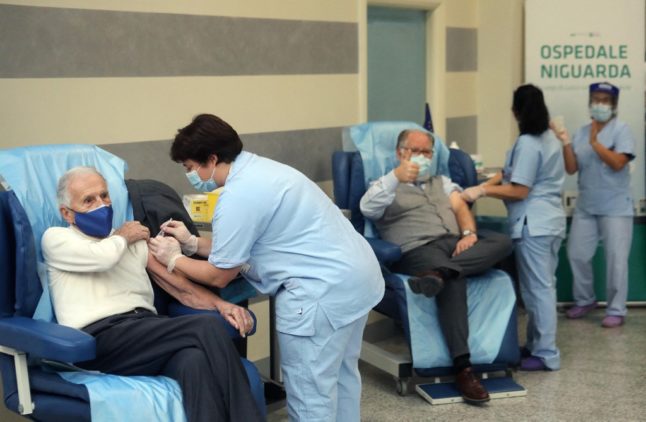Italy’s death toll from the coronavirus outbreak rose by 756 to 10,779, the country’s Civil Protection Agency said on Sunday.
The figure represents the second successive fall in the daily rate since Friday, when 919 people died in Italy. Saturday’s fatality rate was 889.
Italy’s Covid-19 death toll remains by far the highest in the world (accounting for roughly a third of all deaths), followed by Spain which has seen more than 6,500 deaths.
A total of 5,217 new cases were reported on Sunday in Italy, down from 5,974 on Saturday.
Italian Prime Minister Giuseppe Conte has asked the public “not to drop their guard” rather than assuming that the virus has passed its peak.
Nevertheless, the daily rise in infections has slowed to 5.6 percent – the lowest rate since Italian officials started tracking cases following the first death on February 21.
In the epicentre of the pandemic, the region around Milan where the number of cases previously increased daily, the number of Italians receiving intensive care remained almost unchanged.
“We are witnessing a slowdown,” University of Milan virologist Fabrizio Pregliasco told the Il Corriere della Sera daily.
“It is not plateau yet, but it is a good sign.”
Italy closed all of its schools at the start of the month and then began gradually imposing a lockdown, tightening it successively until almost all stores were shut on March 12.
The measures – since adopted to varying degrees across most of Europe – did not prevent Italy's death toll from overtaking that in China, where the disease was first reported, on March 19.
And while the lockdown — which is officially due to end on April 3 – is economically painful, officials appear determined to extend it until the coronavirus is finally stopped in its tracks.
Regional affairs minister Francesco Boccia said the question facing the government was not whether it would be extended, but by how long.
“The measures expiring on April 3 will inevitably be extended,” Boccia told Italy's Sky TG24 television.
“I think that, at the moment, talking about re-opening is inappropriate and irresponsible.”
A final decision is expected to be made at a ministerial meeting in the coming days.
Boccia also indicated that the eventual easing of the different confinement measures would be gradual.
“We all want to go back to normal,” he said. “But we will have to do it by turning on one switch at a time.”
In theory, the existing state of national health emergency allows Prime Minister Giuseppe Conte to extend the lockdown until July 31.
Conte has said that he would like to lift the severest restrictions — including those forcing the suspension of Italy's Serie A football season — a few months prior to that.



 Please whitelist us to continue reading.
Please whitelist us to continue reading.
Member comments